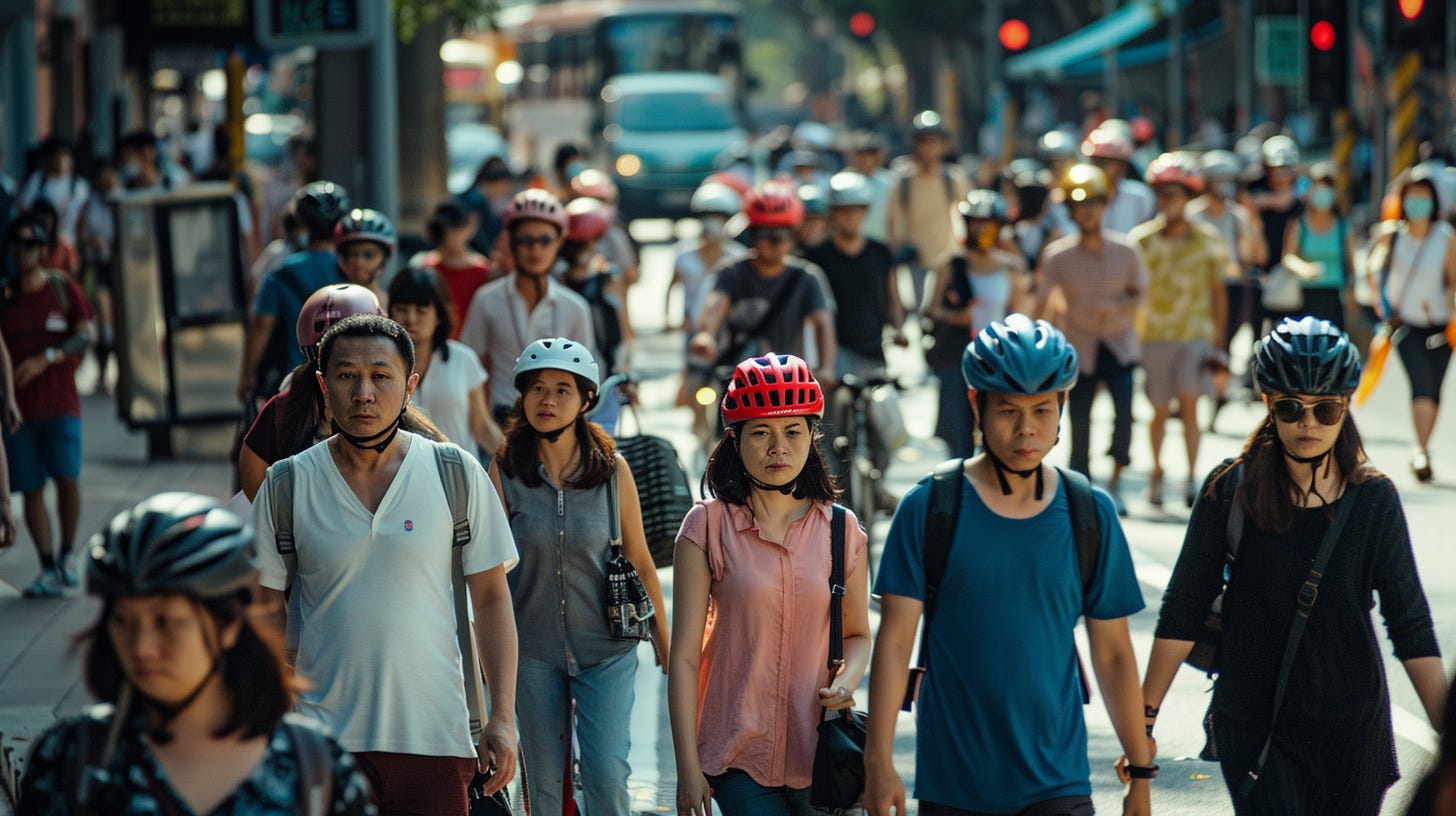Singapore Enforces New Law: Pedestrians Must Wear Helmets When Walking on Sidewalks
SINGAPORE - The Singaporean government has announced a new regulation requiring all pedestrians to wear helmets while walking on sidewalks. This law, set to take effect on August 1, 2024, is aimed at enhancing public safety amid rising concerns over pedestrian accidents. The directive, announced by the Ministry of Transport on Monday, has sparked a wide array of reactions from the public and experts alike.
According to the Ministry of Transport, the decision to enforce helmet usage stems from a significant increase in pedestrian-related accidents. "The safety of our citizens is paramount," stated Transport Minister Lee Wei Ling. "We have observed a troubling trend in pedestrian injuries, particularly head traumas, which can be significantly mitigated by the use of helmets."
The Ministry cited data indicating a 25% rise in pedestrian accidents over the past year, with a notable proportion resulting in head injuries. The new law is part of a broader initiative to promote a culture of safety in public spaces. Minister Lee emphasized that the regulation is not meant to inconvenience the public but to protect them from unforeseen accidents.
The announcement has elicited mixed reactions from Singaporeans. While some appreciate the government's proactive approach to safety, others view the mandate as excessive and impractical. "It's going to be cumbersome to carry a helmet around just for a short walk," said Tan Mei Lin, a resident of Orchard Road. "I understand the need for safety, but this feels like an overreach."
Retailers and manufacturers of helmets, however, are preparing for a surge in demand. Local businesses have reported a spike in helmet sales following the announcement. "We've seen a 50% increase in helmet purchases in just the last 24 hours," noted Lim Siew Hong, owner of a sporting goods store in Bugis. The regulation is expected to create economic opportunities within the safety gear industry, potentially leading to new jobs and increased revenue.
Experts have weighed in on the effectiveness and feasibility of the new law. Dr. Rajesh Kumar, a public health expert at the National University of Singapore, supports the measure, citing studies that show helmets can reduce the severity of head injuries by up to 85%. "While it may seem unconventional, the data supports the effectiveness of helmets in preventing serious injuries," Dr. Kumar asserted.
However, some urban planners and sociologists have raised concerns about the law's practicality and enforcement. "The challenge will be in ensuring compliance and managing the social implications of such a visible regulation," commented Dr. Amanda Wong, a sociologist at Singapore Management University. "We need to consider how this will affect daily life and social interactions."
Looking ahead, the government has indicated that it will monitor the law's impact closely and make adjustments as necessary. Minister Lee assured the public that the regulation would be reviewed periodically to ensure it remains relevant and effective. "Our goal is to protect our citizens while maintaining the vibrant and dynamic nature of our city," she concluded.
As Singapore prepares to implement this new law, the world watches with keen interest. The initiative represents a bold step in urban safety and could set a precedent for other cities grappling with pedestrian safety issues. Whether the helmet mandate will achieve its intended outcomes or face significant pushback remains to be seen.



